Benefits of Russian Citizenship
How to Obtain Russian Citizenship
Russian Residency by Investment
How to Apply for Russian Citizenship
Russian Citizenship Processing Time
How to obtain Russian permanent residency?
Russian Dual Citizenship
Reasons for rejection of the Russian Citizenship application
Frequently Asked Questions about Russian Citizenship
Our support to guide your path to Russian citizenship
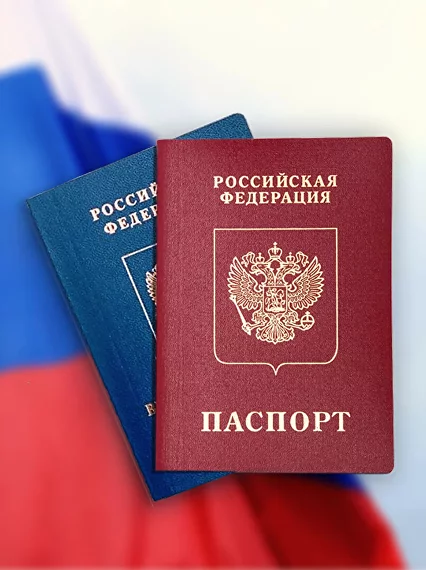
Russian citizenship lets you live anywhere in the country without needing residency permits.
Enjoy borderless travel between Russia and Belarus with no checks, offering seamless movement and greater freedom.
Unlock global travel with a Russian passport: Visit 85 countries visa-free, 16 with visa on arrival, and 41 via
e-visas.
Access 142 destinations, covering 73% of the world—up from 119 in 2023.
Start your adventure today!
Explore the full list of countries here.
Save on personal income taxes, often in the teens, and enjoy low energy costs—no more shocking utility bills!
Start your business in Russia with lower setup costs and tax benefits, especially for IT entrepreneurs. Seize these opportunities now!
As a Russian citizen, access free universal healthcare without additional fees—a significant advantage.
Benefit from robust social support systems, including generous child benefits and pensions.

As a Russian citizen, unlock educational perks like potentially free higher education at state universities under certain conditions.
Enjoy access to cultural programs and state-funded initiatives available exclusively to citizens.
Secure your future in Russia with citizenship that eliminates the risks of deportation or visa issues. Ideal for those planning to live in Russia long-term or permanently.
Enjoy the legal stability and peace of mind that only citizenship can provide.
Becoming a Russian citizen unlocks key rights: voting in elections, participating in political activities, and even running for public office.
These opportunities empower citizens to shape the nation’s future—privileges that are out of reach for non-citizens.
While Russia officially does not encourage dual citizenship, it is tolerated in practice for many nationalities.
This allows individuals to retain benefits from both countries, although it requires notification to Russian authorities.
As a Russian citizen, you can can access 142 countries out of the 195 worldwide, covering 73% of global destinations. This represents a significant increase from 2023, when access was available to 119 countries. Please see the full list of destinations accessible with Russian passport.
Obtaining Russian citizenship involves several steps, each with specific requirements. The process is primarily governed by the Federal Law “On Citizenship of the Russian Federation” No. 138-FZ, which came into effect on October 26, 2023.
Application: Foreign nationals can apply for a Temporary Residence Permit (Разрешение на временное проживание, РВП) to live in Russia. Some, like spouses of Russian citizens or participants in the State Program, qualify without a quota. The new Shared Values Visa (launched August 2024) lets citizens and residents of select countries skip the quota and language test. Read more about it here
Validity: The Temporary Residence Permit is typically valid for three years and cannot be extended.
Eligibility: After residing in Russia for at least one year with a Temporary Residence Permit, individuals can apply for a Permanent Residence Permit (Вид на жительство, ВНЖ). Certain categories, highly qualified specialists or those with Russian family members, may be eligible to apply directly for a Permanent Residence Permit without obtaining a Temporary Residence Permit first.
Also, investors in Russia can apply for the Russian Golden Visa that directly grants a Permanent Residence Permit for them and their whole family including parents, all the descendants and their spouses. Read more about the program here
Validity: The Permanent Residence Permit is issued indefinitely and requires one to live in Russia for more than half of the time year.
General Procedure: Applicants must have resided in Russia for at least five years with a Permanent Residence Permit, demonstrate proficiency in the Russian language, have a legal source of income, and commit to abiding by the Russian Constitution.
Simplified Procedure: Certain categories, such as individuals married to a Russian citizen for at least three years or those with Russian parents, may be eligible for a simplified process, which may reduce the residency requirement or waive certain conditions.
Upon approval, applicants are required to take an oath of allegiance to the Russian Federation. Failure to do so within a specified period may result in the annulment of the citizenship decision.
A child acquires Russian citizenship by birth if, at the time of their birth:

Individuals born outside Russia who have at least one parent who is a citizen of the Russian Federation may qualify for citizenship by descent.
To apply, documentation proving the parent’s citizenship at the time of the child’s birth is required.

Foreign nationals married to Russian citizens may apply for citizenship through a simplified process. The main conditions include:

Foreign nationals can acquire Russian citizenship through the general process by meeting the following conditions:

Russian citizenship can be acquired by participating in and winning contests organized by the organization — “Russia, the Land of Opportunities”.
This organization, by law, can recommend someone to be granted Russian citizenship. “Russia, the land of opportunities” hosts such competitions as “Leaders of Russia” – which is a competition of leadership talent & managers that attracts competitors both from Russia and abroad.

Winning in this competition, which is now hosted annually, could grant you Russian citizenship — however, you would compete against the top businesses and members of government in Russia.
As a result, this route requires both excellent command of the Russian language as well as first-class leadership skills and experience.
Russian citizenship can be granted directly by the president of the Russian Federation.

Individuals who previously held Russian citizenship and voluntarily renounced it may apply for citizenship restoration. The main requirements include:
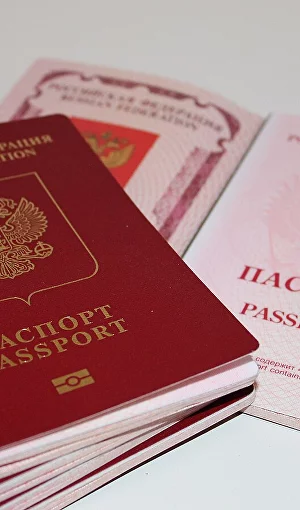
Simplify your path to Russian citizenship! Navigating the citizenship process can be complex, but we’re here to help. From permits to applications, our experts provide personalized guidance every step of the way. Ready to start? Click the button to get a free consultation today!
The Golden Visa program grants investors and his/her family (spouses, parents, children, and the children of the spouse) a permanent residence permit without the need to apply for or obtain a temporary residence permit. Live anywhere — the permanent residence permit also grants you the opportunity to settle in the region you want, instead of being limited to only settling in one region – that you can do on a temporary Residence Permit.
There are four different paths to obtain a permanent residence by investment.

Criteria: Purchase real estate in Russia, either during construction or within two years post-completion, and maintain ownership for at least one year before applying.
Investment Thresholds:
Criteria: Purchase real estate in Russia, either during construction or within two years post-completion, and maintain ownership for at least one year before applying.

Criteria: Invest at least 30 million rubles in a Russian legal entity that has operated for a minimum of three years.
Financial Requirements: The company should have paid at least 6 million rubles in taxes and fees in the calendar year preceding the application.

Criteria: Invest a minimum of 15 million rubles into socially significant projects within Russian regions over the three years preceding the application.
Details: These projects typically encompass social services, citizen support and protection, healthcare, and family assistance initiatives.

Criteria: Register a company in Russia as the sole proprietor and conduct business activities for at least two years before applying.
Financial Requirements: The company must annually pay a minimum of 4 million rubles in taxes and fees to the Russian budgetary system and state non-budgetary funds for two prior years before you can apply for the Permanent Residency based on investment.
Obtaining a permanent residence permit in Russia is a crucial step for foreign nationals aiming to reside long-term in the country. The process involves several stages and specific requirements.
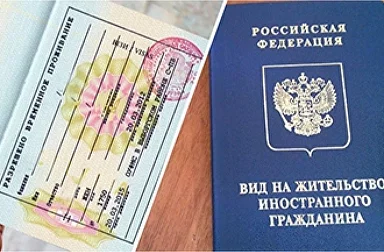
Temporary Residence Permit:
Generally, applicants must first secure a Temporary Residence Permit, which allows temporary residence in Russia. The Temporary Residence Permit is typically valid for three years and is not subject to extension. During this period, the holder can live and work in Russia.
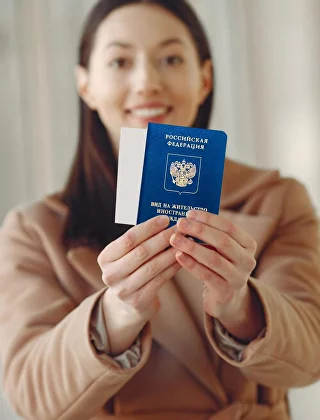
After residing in Russia with a Temporary Residence Permit for at least one year, foreign nationals can apply for a permanent residence permit. However, certain categories may bypass the Temporary Residence Permit stage and apply directly for a Permanent Residence Permit:

Document Preparation: Applicants must gather and submit the following:
Submission: Applications are submitted to the local office of the Ministry of Internal Affairs in the applicant’s place of residence.

The review period for a permanent residence permit application is up to six months. Applicants are advised to submit their applications well in advance of any visa or RVP expirations.
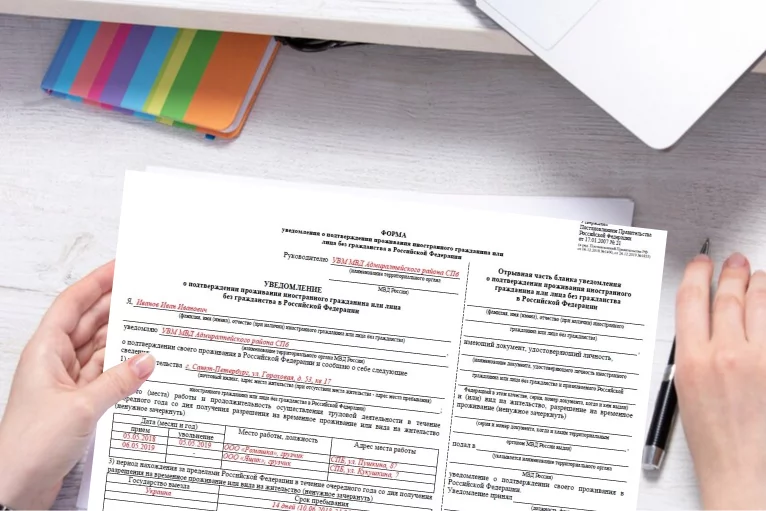
Holding a Permanent Residence Permit grants foreign nationals the right to reside in Russia indefinitely, work without additional permits, and access certain social services. However, they must annually confirm their residence and income to the authorities.
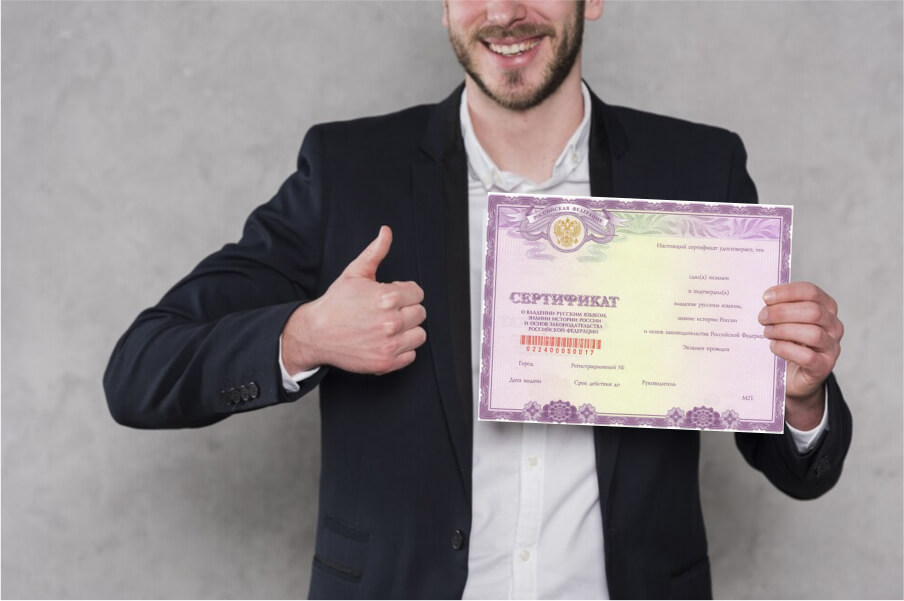
Language Proficiency: Applicants are generally required to demonstrate proficiency in the Russian language, confirmed through certification or relevant educational documents.
Health Requirements: Medical examinations are necessary to ensure the absence of specific infectious diseases.
Legal Compliance: Adherence to Russian laws and regulations is mandatory throughout the residency period.
Secure your Russian permanent residency with ease. Obtaining the permanent residency in Russia can open the door to long-term stability and wide range of opportunities.
Let our experts guide you through every step of the process. Click the button to request a free consultation and take the first step today!
The Golden Visa program grants investors and his/her family (spouses, parents, children, and the children of the spouse) a permanent residence permit without the need to apply for or obtain a temporary residence permit.
It saves a lot of time as well as avoids the hassle of competing for the temporary residence permit quota — which is very limited.
Live anywhere — it also grants you the opportunity to settle in the region you want, instead of trying to apply for a quota in a far-off region that does not get a lot of applicants, to maximize your chances.
Buy a home and get a Golden Visa — this path, most commonly used by our clients, provides you with investment in your own real estate, that you can use as your residency — that will also be used as your place of registration, an important piece of paperwork for the Russian state.
Application can be done remotely.
Want to learn more? Click the button to contact us.
To apply for Russian citizenship, foreign nationals generally need to first obtain a temporary residence permit (RVP) and then a permanent residence permit (VNZH). After residing in Russia for several years, applicants can apply for citizenship by demonstrating language proficiency, legal income, and commitment to Russian laws.
Certain categories, such as spouses of Russian citizens or former USSR nationals, may qualify for a simplified process. Recent legislative updates have introduced streamlined procedures for specific applicants, making it important to stay informed about current requirements.
The application process for Russian citizenship generally includes the following steps:
Identify the appropriate pathway for your situation, such as naturalization, marriage to a Russian citizen, or restoration of previous citizenship.
The categories below are exempt and thus can apply without the Russian language, History and law test.
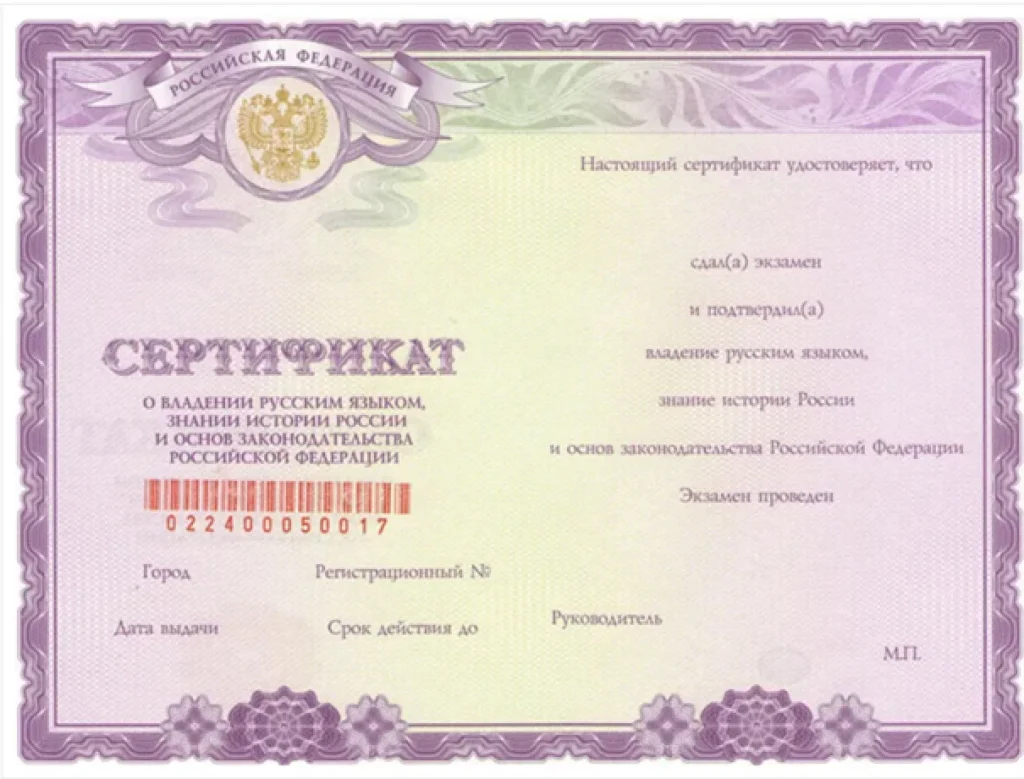
Submit Application: File your application at the local office of the Ministry of Internal Affairs (МВД) or, if abroad, at a Russian consulate.
Await Decision: The authorities will review your application and notify you of their decision.

Processing times can vary:
Delays can occur due to incomplete documentation or additional background checks.
Simplify your path to Russian citizenship! Navigating the citizenship process can be complex, but we’re here to help. From permits to applications, our experts provide personalized guidance every step of the way. Ready to start? Click the button to get a free consultation today!
It’s important to mention that you can be denied Russian citizenship if your documents are not correctly submitted — but also due to the criteria below:
Advocate for changing the Constitution of the Russian Federation or pose a threat to the security of the Russian Federation, for example, by attempting on the life of a politician, forcibly seizing power, or calling for something similar.
Participate or have participated in armed conflicts with Russian peacekeepers or the army, resisted Russian military forces, or participated in a terrorist act or its preparation against Russians and Russian Federation representations.
Participate or have participated in extremist activities, espionage, armed rebellion, or disclosure of state secrets.
Are restricted from entering Russia due to being subjected to expulsion or deportation from the country.
Submitted false documents or provided false information about themselves.
Served in the military, law enforcement, or security agencies of a foreign state.
Have an unexpunged or unrehabilitated conviction for a deliberate crime.
Are criminally prosecuted for crimes.
Are convicted and are in prison.
Refuse to take the oath of citizenship of the Russian Federation.
If you are not subject to any of those criteria — you have nothing to worry about.
Russia allows dual citizenship under specific conditions:
Russian citizens who acquire another citizenship must notify the Ministry of Internal Affairs within 60 days.
Dual citizens are recognized as Russian citizens within Russia and are subject to all rights and obligations, including military service.
Russia has dual citizenship treaties only with Tajikistan and Turkmenistan. For other countries, dual citizenship is recognized but not regulated by specific agreements.
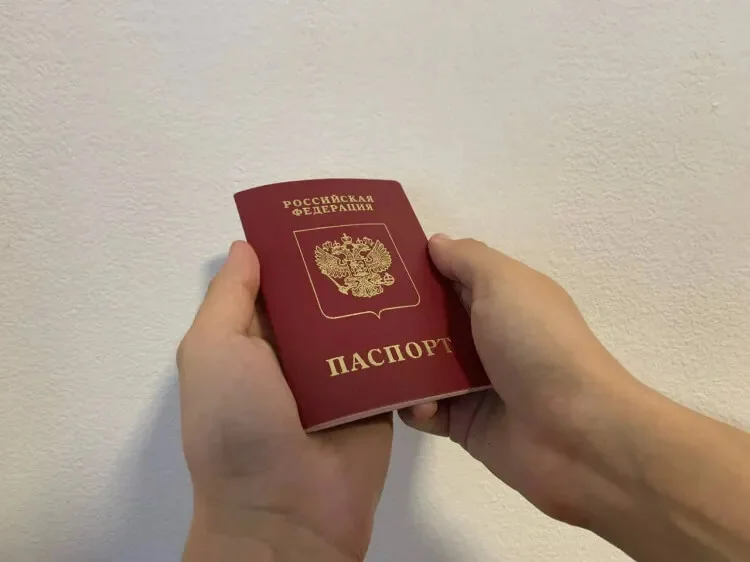
Russia permits its citizens to hold dual citizenship; however, it doesn’t have specific agreements with the UK regarding dual nationality. Russian citizens with a second citizenship must notify the Russian authorities. It’s important to understand that while Russia allows dual citizenship, the UK may have its own regulations.
Similar to the UK, Russia allows dual citizenship but doesn’t have specific agreements with the US. Russian citizens holding another citizenship are required to inform Russian authorities. The US also permits dual citizenship but has its own legal considerations.
Yes, proficiency in the Russian language is generally required for naturalization.
Applicants must demonstrate the ability to communicate in Russian, which is assessed through a language test that has a proficiency level between B2 and C1.
B2 Vantage – “Can understand the main ideas of a complex text on both concrete and abstract topics, including technical discussions related to his/her field of specialisation. Can interact with a degree of fluency and spontaneity that makes regular interaction with native speakers quite possible without strain for either party. Can produce clear, detailed texts on a wide range of subjects and explain his/her viewpoint on a topical issue giving the advantages and disadvantages of various options.”
C1 Effective operational proficiency – “Can understand a wide range of demanding, longer texts, and recognize implicit meaning. Can express himself/herself fluently and spontaneously without much obvious searching for expressions. Can use language flexibly and effectively for social, academic and professional purposes. Can produce clear, well-structured, detailed texts on complex subjects, showing controlled use of organisational patterns, connectors and cohesive devices.”
Some exceptions apply, such as for individuals with certain disabilities or those who have received education in Russian.
Achieving a C1 level in Russian within two years is possible with consistent effort and a focused approach. Here are five key strategies:
Create a Balanced Study Plan: Focus on grammar, vocabulary, speaking, listening, reading, and writing. Dedicate regular time to each area for steady progress.
Immerse Yourself in the Language: Watch Russian films, listen to music, read books, and engage with media in Russian to enhance comprehension and familiarity.
Practice Speaking Frequently: Build fluency and confidence by conversing with native speakers or language partners. Speaking regularly is crucial for progress.
Leverage Professional Guidance and Resources: Enroll in classes, hire a tutor, and use tools like apps, online courses, and textbooks for a comprehensive learning experience.
Stay Consistent and Culturally Engaged: Practice daily and explore Russian culture through events and activities to deepen your understanding and stay motivated.
Secure your Russian Citizenship faster.
Skip the standard 7-9 year process. With the Russian Golden Visa, you can obtain citizenship in just 5 years, bypassing the complex temporary residence stage. Let Move to Russia guide you and your family directly to permanent residency.
Contact us today to start your journey.
The List of Destinations Accessible for Russian Citizens
Europe
Visa-free:
Visa on Arrival:
none
Electronic Visa (e-Visa)
none
Asia
Visa-free:
Visa on Arrival:
Electronic Visa (e-Visa)
Africa
Visa-free:
Visa on Arrival:
Electronic Visa (e-Visa)
North America
Visa-free:
Visa on Arrival:
none
Electronic Visa (e-Visa)
South America
Visa-free:
Visa on Arrival:
none
Electronic Visa (e-Visa)
Oceania
Visa-free:
Visa on Arrival:
Electronic Visa (e-Visa)
Access to Membership
Shared Values Visa Guide
$99